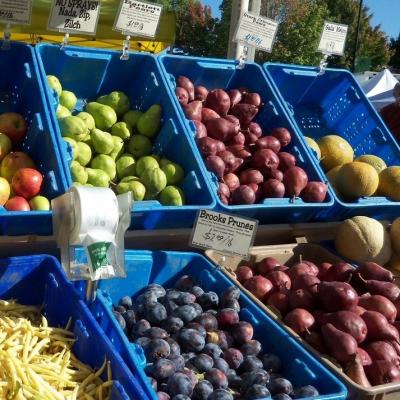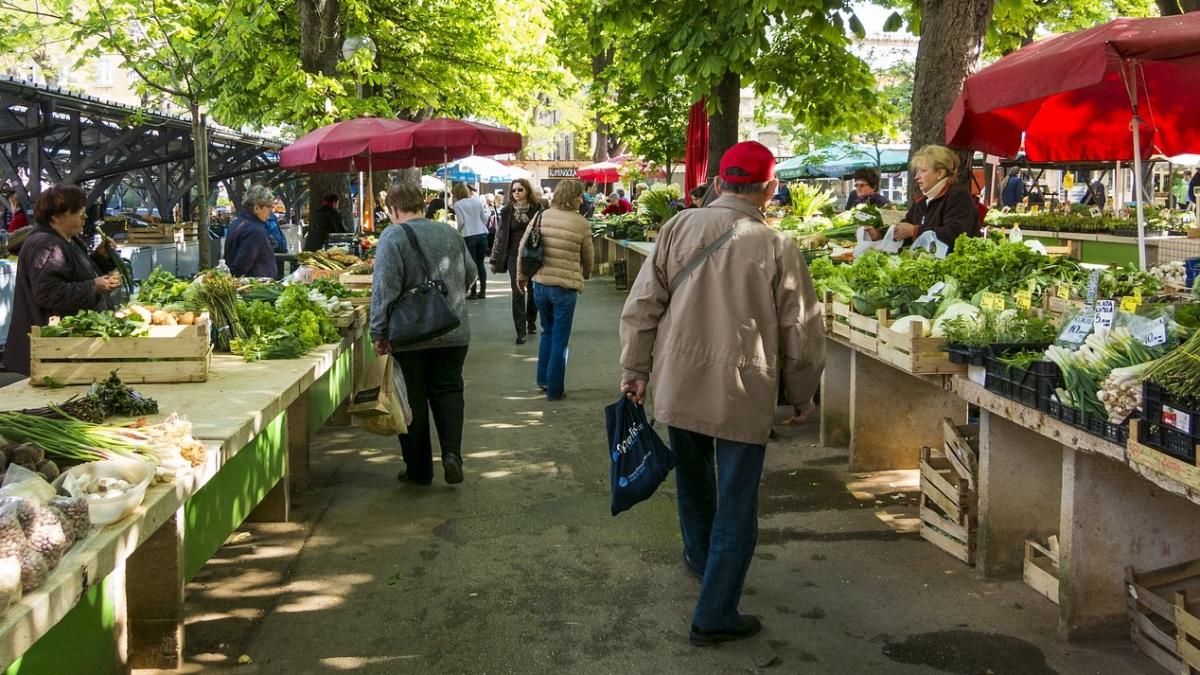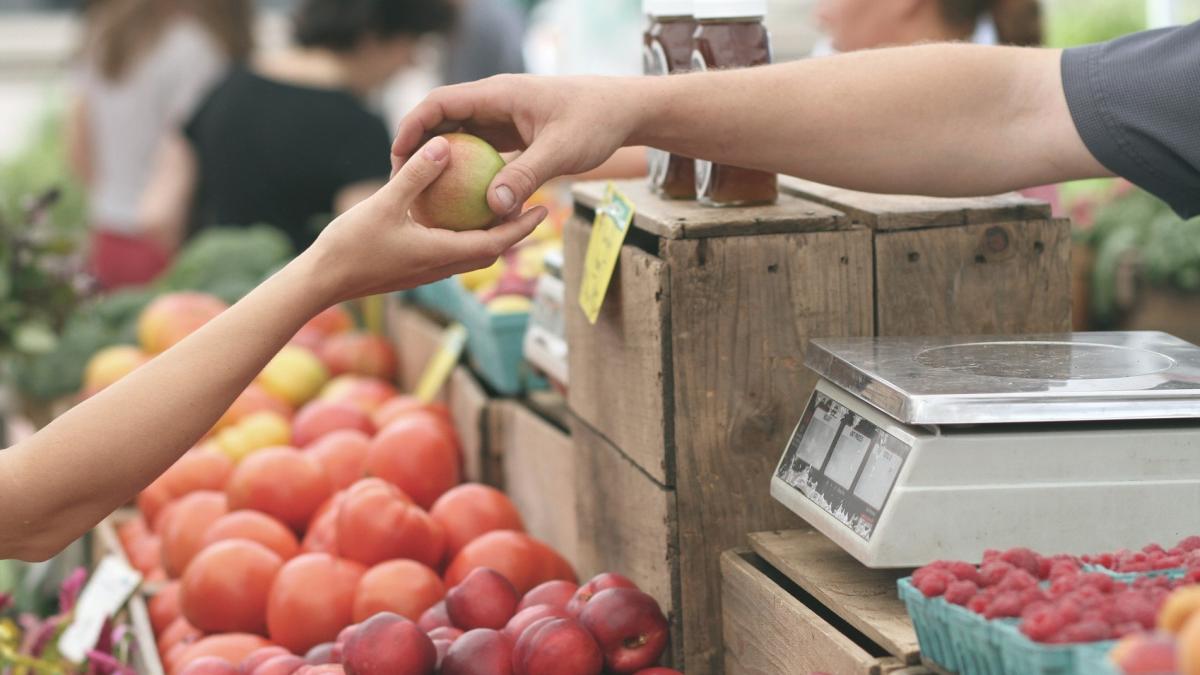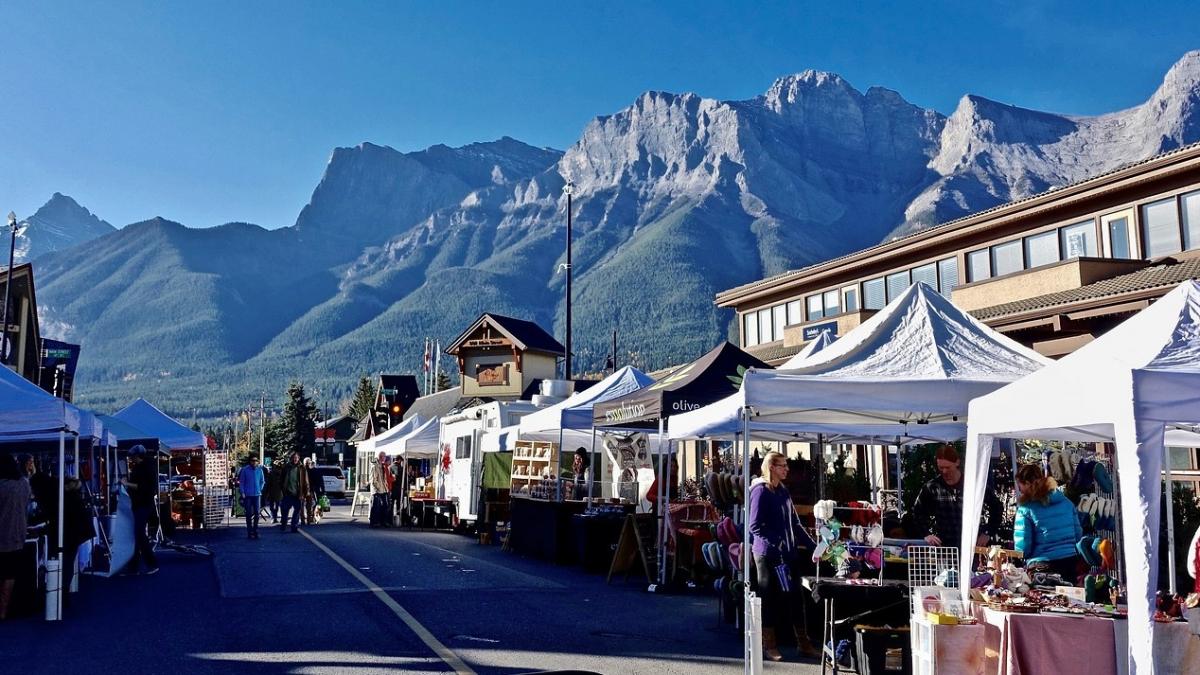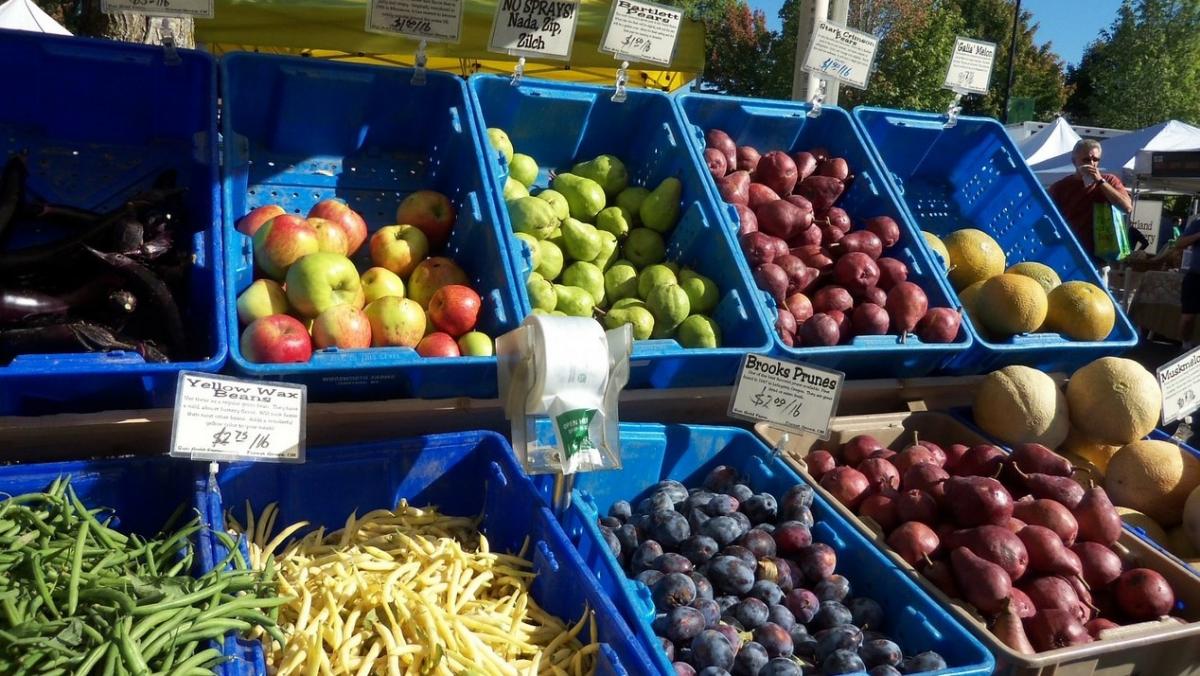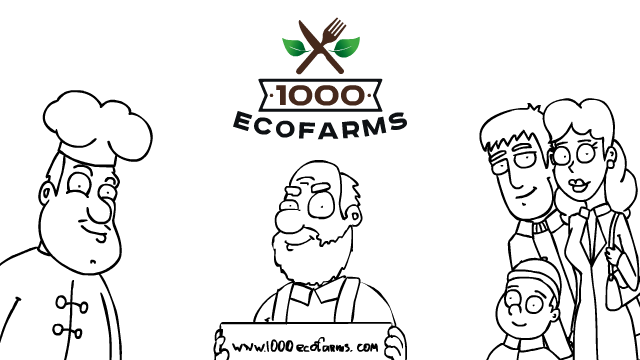1. When you shop at traditional food outlets, such as supermarkets and big box stores, farmers and ranchers only receive about 15 cents of every food dollar. When you shop at the farmers’ market, your local farmer and rancher receives 100% of that food dollar.
2. Farmers’ markets stimulate commerce and sales at nearby businesses.
3. It is one of the best ways to get local food which can be fresher and more nutritious as it is harvested at its peak. More than 85% of farmers’ markets vendors traveled less than 50 miles to sell at a famers’ market according to one study. Further, the same study found that more than 50% traveled less than ten miles to sell at the market.
2. Farmers’ markets stimulate commerce and sales at nearby businesses.
3. It is one of the best ways to get local food which can be fresher and more nutritious as it is harvested at its peak. More than 85% of farmers’ markets vendors traveled less than 50 miles to sell at a famers’ market according to one study. Further, the same study found that more than 50% traveled less than ten miles to sell at the market.
4. You can trust them. A 2012 grocery retail study found that farmers’ markets are the most trusted food outlet to supply consumers with local foods. On a scale from 1 to 10, consumers rated farmers’ market as an 8.2, which was the highest ranking category. The next two most trusted food outlets were natural food markets and locally owned stores.
5. They may be using more sustainable practices. A 2015 survey found that 81% of farmers that were selling at farmers’ markets were using sustainable practices such as: cover cropping, reduced tillage, composting and sustainable soil practices.
5. They may be using more sustainable practices. A 2015 survey found that 81% of farmers that were selling at farmers’ markets were using sustainable practices such as: cover cropping, reduced tillage, composting and sustainable soil practices.
6. Globally, 40% of food is wasted or thrown away and in developed countries, retailers and grocery outlets are some of the biggest culprits of food waste. Many farmers selling at the market understand the value of the food that they produce and they know their consumers so they produce just enough and tend not to waste food. Further, many farmers’ markets are working with food banks and other food recovery organizations to donate any leftover food at the end of the market that they can’t sell at other markets or that they don't want to bring back to the farm. So they help save food from going to waste and they feed many people.
7. They are great teachers. 4 out of 5 farmers discuss farming practices with customers and explain how they interact with the natural environment. One study indicated that 72% of consumers know “nothing” or “very little” about farming and ranching. Farmers and ranchers can help bridge this gap through education at the market.
7. They are great teachers. 4 out of 5 farmers discuss farming practices with customers and explain how they interact with the natural environment. One study indicated that 72% of consumers know “nothing” or “very little” about farming and ranching. Farmers and ranchers can help bridge this gap through education at the market.
8. They can be affordable despite the myth that they are always more expensive. One Vermont study found that prices for many conventional and all organic products sold at the farmers’ market were lower than the same products at nearby supermarkets. The only exception was potatoes. Another study showed that average prices were 9% lower at the farmers’ market compared to supermarkets in 12 North Carolina counties.
9. The food sold at the market may be fresher and healthier. In one study conducted in Washington DC, 80% said that the food sold at farmers’ market is often “fresher, cheaper, and healthier.”
10. They are fun! Many farmers’ markets have weekly themes, entertainment, cooking demos, educational vendors and much more!
To find a nearby market, either ask the locals and your friends and family or visit www.1000ecofarms.com where many local farmers markets are represented! Or buy online from a local farmer, and pickup from them at a local farmers' market. This way your food is guaranteed to be there, waiting for you, and you won't miss out on the fun aspect of connecting directly with local farmers and vendors!
9. The food sold at the market may be fresher and healthier. In one study conducted in Washington DC, 80% said that the food sold at farmers’ market is often “fresher, cheaper, and healthier.”
10. They are fun! Many farmers’ markets have weekly themes, entertainment, cooking demos, educational vendors and much more!
To find a nearby market, either ask the locals and your friends and family or visit www.1000ecofarms.com where many local farmers markets are represented! Or buy online from a local farmer, and pickup from them at a local farmers' market. This way your food is guaranteed to be there, waiting for you, and you won't miss out on the fun aspect of connecting directly with local farmers and vendors!


